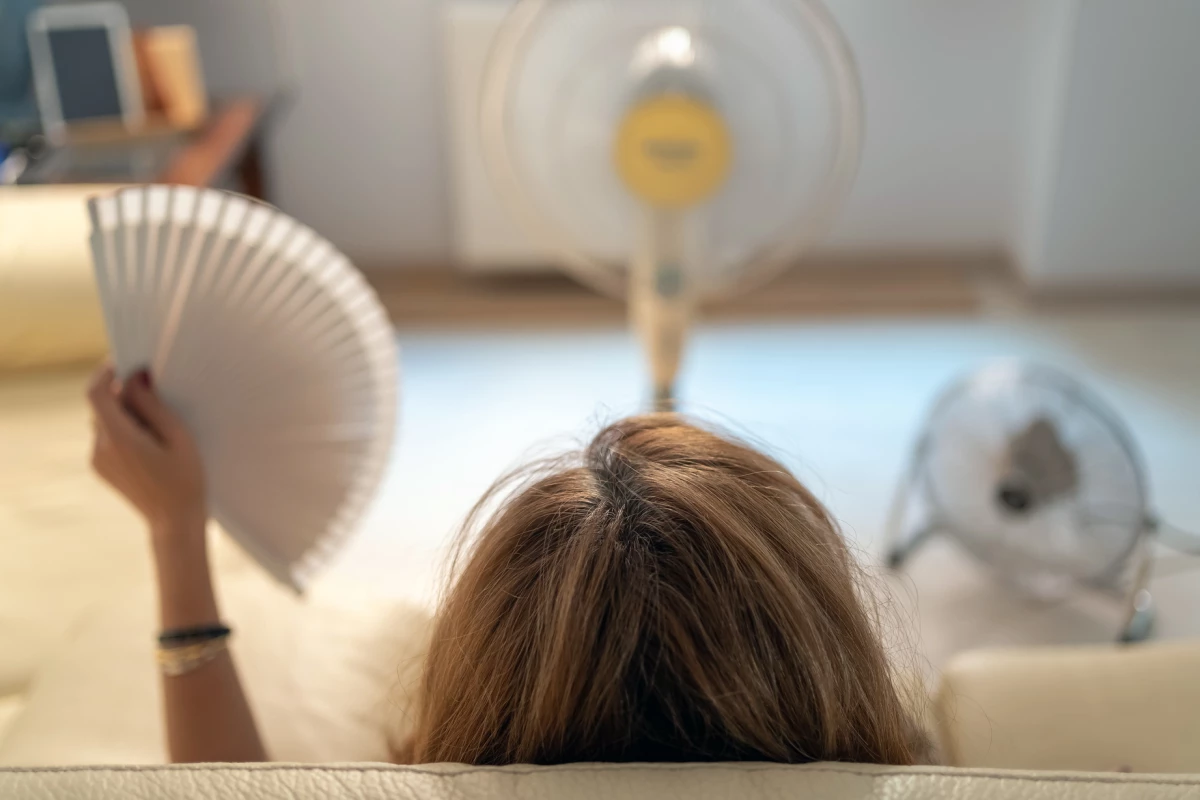Switching from a diet including meat to a low-fat vegan diet reduced severe hot flashes in menopausal women by a staggering 92%, according to a new study. Interestingly, the benefit was seen even if the women ate highly processed plant-based foods.
Studies have shown that, compared to a diet that includes meat, plant-based diets are more beneficial for maintaining long-term health, particularly cardiovascular health and weight management.
Now, a new joint American-Canadian study has found that eating a low-fat vegan diet, specifically one supplemented with soybeans, can reduce body weight and the hot flashes associated with menopause – even if the plant-based food being eaten is highly processed.
“This study highlights the potential positive effects of a plant-based diet rich in soy (regardless of the level of processing) in terms of both hot flash and weight management,” said Dr Stephanie Faubion, who is the medical director for The Menopause Society and was not involved in the study. “Given these and the other known benefits in terms of lowering heart disease and cancer risk, women in midlife should consider leaning into a plant-based diet.”
Menopause is the permanent cessation of menstrual periods, marking the end of a woman’s reproductive years. Hot flashes, or hot flushes, are a common symptom of menopause, experienced by about 80% of women. Characterized by a sudden wave of heat that usually starts in the chest and spreads to the neck and face, hot flashes can produce a feeling of overheating and burning. It’s not known exactly what causes hot flashes, but it’s thought that lower levels of estrogen are the culprit, as the hormone plays a significant role in lowering body temperature. The term “postmenopausal” is used to describe a woman who has not had a period for 12 consecutive months; it lasts for the rest of a woman’s life. Treatments are aimed at easing symptoms and include menopause hormone therapy (MHT).
The researchers recruited 84 postmenopausal women aged 40 to 65 who’d reported at least two moderate-to-severe hot flashes a day to the 12-week study. Half of the participants were randomly assigned to a low-fat vegan diet supplemented with soybeans, while the other half served as the control group, eating an omnivorous diet. Women were excluded if they were already eating a low-fat vegan diet, had a soy allergy, used hormonal medications in the preceding two months, used weight-reducing medication in the preceding six months, smoked, or drank more than one alcoholic beverage a day.

The vegan group was asked to avoid all animal products and follow a diet consisting of fruits, vegetables, grains, and legumes, with half a cup (86 g/3 oz) of cooked soybeans each day. Those in the control group ate their usual diet. Neither group received instructions about how much processed food they could consume. Dietary adherence was assessed weekly, and the women’s hot flashes were tracked using a smartphone app. (Side note: Integrating soybeans into a low-fat vegan diet can enhance its nutritional completeness and provide essential nutrients that are typically found in animal products.)
At 12 weeks, severe hot flashes fell by 92%, from 1.3 per day to 0.1 per day, in the vegan group and didn’t change significantly in the control group (from 0.7/day to 0.4/day). The symptom reduction seen in the vegan group occurred regardless of whether the women ate processed or unprocessed plant-based foods. Moderate-to-severe hot flashes decreased by 88% in the vegan groups and by 34% in the control group. Mean body weight decreased by 3.6 kg (7.9 lb) in the vegan group, compared to a reduction of 0.2 kg (0.4 lb) in the control group.
“The current randomized trial demonstrated that, in the context of a vegan diet, replacing the consumption of both unprocessed or minimally processed and ultra-processed animal foods with plant foods (regardless of the level of processing), was associated with weight loss and a reduction in severe hot flashes in postmenopausal women,” said the researchers. “Conversely, the level of processing of plant foods was not associated with changes in body weight or hot flashes, suggesting that the benefits of increasing plant foods are independent of processing level.”
The researchers recognize the study’s major limitations, namely, that food consumption was based on self-reported diet records and that, because participants were volunteers, the findings might not represent the general population. However, they maintain that the study’s results may have significant implications for menopausal women.
The study was published in the journal Menopause.
Source: The Menopause Society






